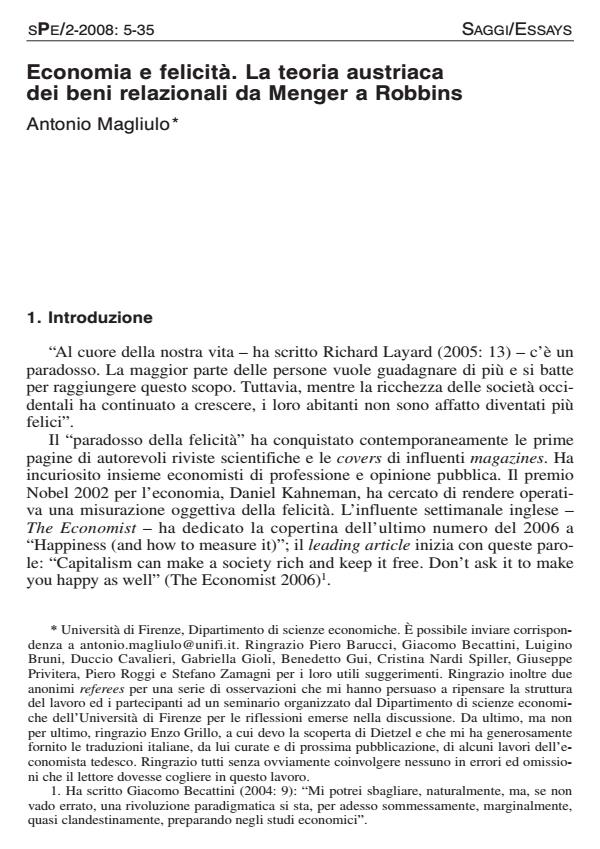Economia e felicità. La teoria austriaca dei beni relazionali da Menger a Robbins
Journal title STORIA DEL PENSIERO ECONOMICO
Author/s Antonio Magliulo
Publishing Year 2009 Issue 2008/2
Language Italian Pages 31 P. 5-35 File size 654 KB
DOI 10.3280/SPE2008-002001
DOI is like a bar code for intellectual property: to have more infomation
click here
Below, you can see the article first page
If you want to buy this article in PDF format, you can do it, following the instructions to buy download credits

FrancoAngeli is member of Publishers International Linking Association, Inc (PILA), a not-for-profit association which run the CrossRef service enabling links to and from online scholarly content.
Economics and happiness. The austrian theory of relational goods from menger to robbins - The paradox of happiness in economics has aroused a growing interest among scholars all over the world. In affluent societies, despite an increase in their income, many people do not declare themselves happier. One explanation is that economic growth can destroy some relational goods affecting happiness: family life, friendship, love, civil participation. Such an explanation is based on a historical interpretation: marginalism, denying the economic nature of relational goods, would have overshadowed the issue of happiness in economics. In this paper I intend to reconstruct the story of an attempt neglected but remarkable first made by Menger and Böhm-Bawerk and later by Wicksteed and Robbins: an attempt to solve the problem of human relationships in economics. JEL classification: B13; D60 Keywords: Austrian school; economics and happiness.
- Menger and the continental epistemology of uncertainty Stefano Solari, in The European Journal of the History of Economic Thought /2022 pp.920
DOI: 10.1080/09672567.2022.2113418
Antonio Magliulo, Economia e felicità. La teoria austriaca dei beni relazionali da Menger a Robbins in "STORIA DEL PENSIERO ECONOMICO" 2/2008, pp 5-35, DOI: 10.3280/SPE2008-002001